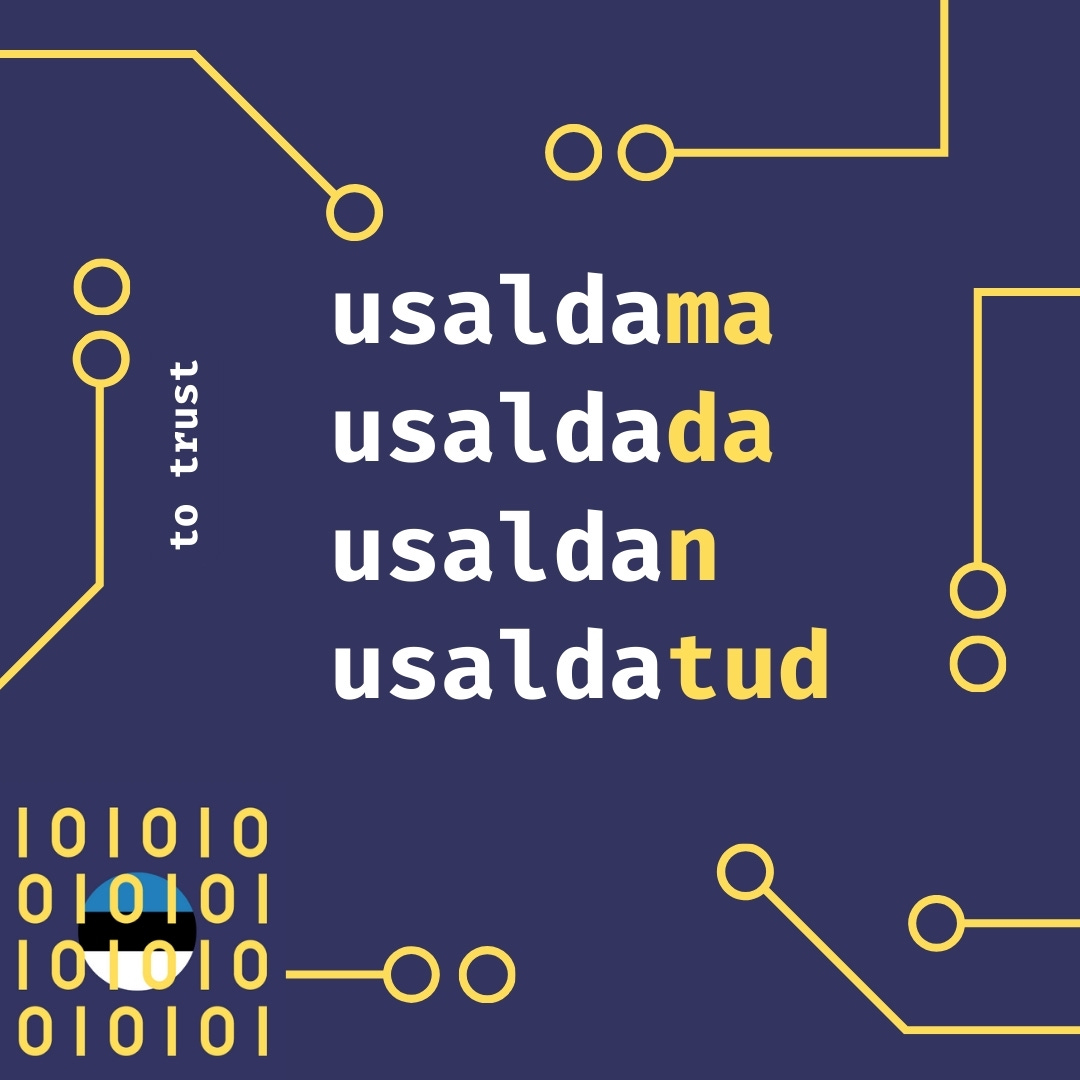Vocab: usaldama
to trust
to trust, to entrust, to place confidence in
Building blocks
usalda- trust
-ma - infinitive ending
It’s derived from another Estonian verb: uskuma (to believe), which itself is derived from Proto-Finnic uskaltadak (to dare, to trust).
How to use it
Thing to remember when using “usaldama”:
Who or what you trust in is the Partitive case (third base form)
To whom you trust something is in the Allative case (ending -le)
If you entrust something in someones care, to whom you entrust it, is in the Genitive case (second base form) and you add kätte (into hand)
Trusting someone:
Ma usaldan oma parimat sõpra. (I trust my best friend.)
Confiding in someone:
Ta usaldas mulle oma saladuse. (He/she confided their secret in me.)
Trusting someone with responsibilities:
Me usaldame teda projekti juhtima. (We trust him/her to lead the project.)
To leave something or someone in someone's care:
Ma usaldan oma võtmed sinu kätte. (I entrust my keys to you.)
Examples
Noored kirjanikud usaldavad oma kogenud mentoreid
Literally: “Young writers trust their experienced mentors”
Noored - Adjective - Nom Pl, "Young"
kirjanikud - Noun - Nom Pl, "writers"
usaldavad - Verb - 3P Present Pl, "trust"
oma - Pronoun - Genitive Sg, "their"
kogenud - Adjective - Indeclineable, "experienced"
mentoreid - Noun - Part Pl, "mentors"Tüdruk usaldas talle oma südame
Literally: “Girl entrusted him her heart”
Idiomatically: “The girl entrusted her heart to him”
Tüdruk - Noun - Nom Sg, "Girl"
usaldas - Verb - 3P Past Sg, "entrusted"
talle - Pronoun - Allative Sg, "him"
oma - Pronoun - Genitive Sg, "her"
südame - Noun - Genitive Sg, "heart"

